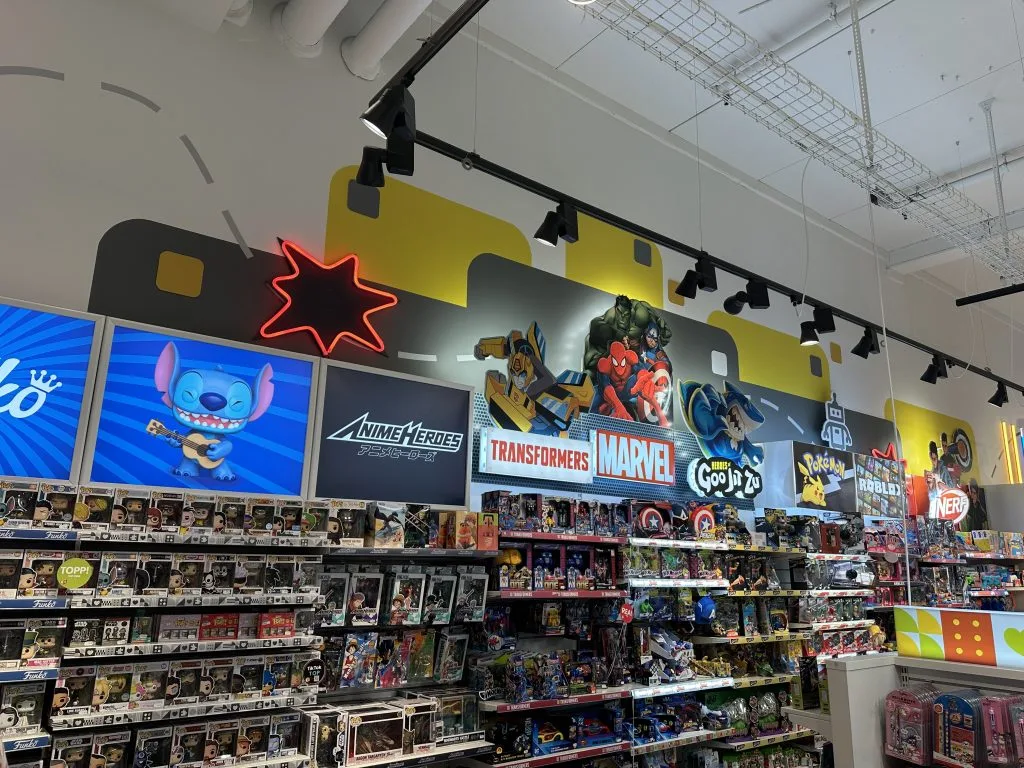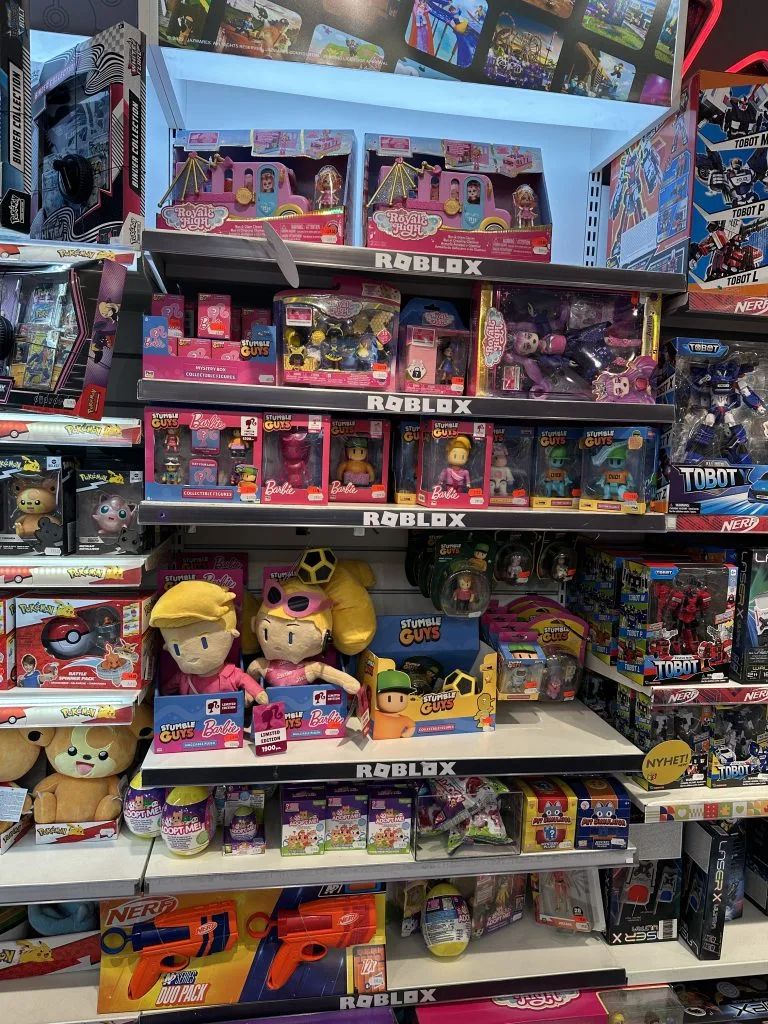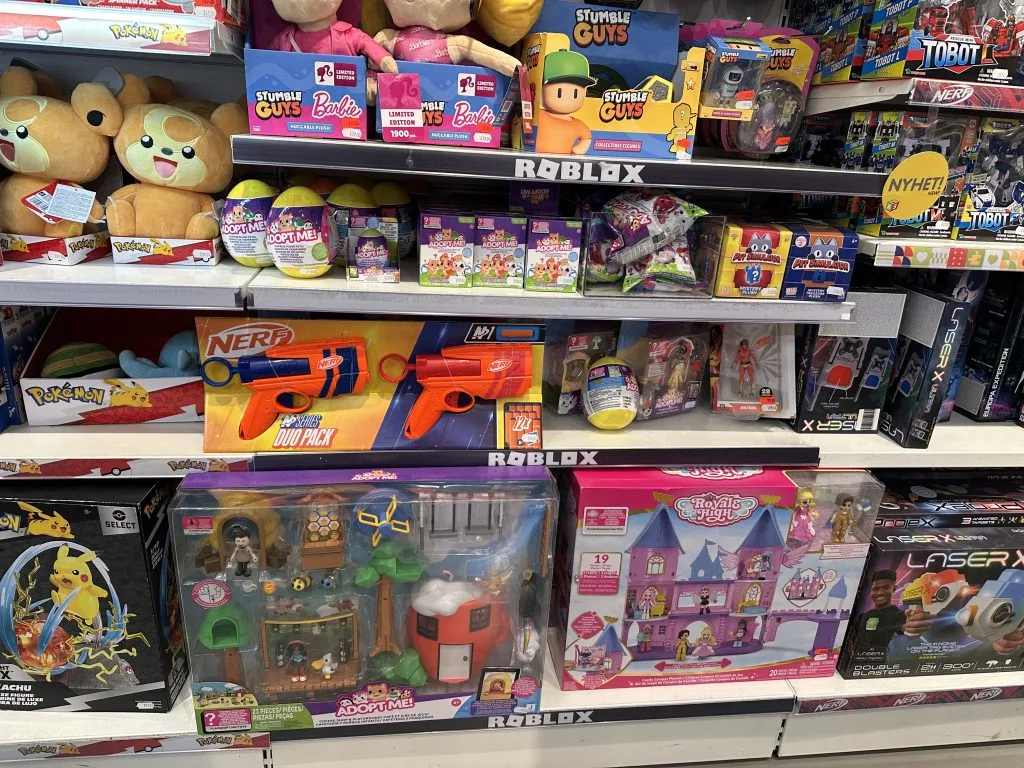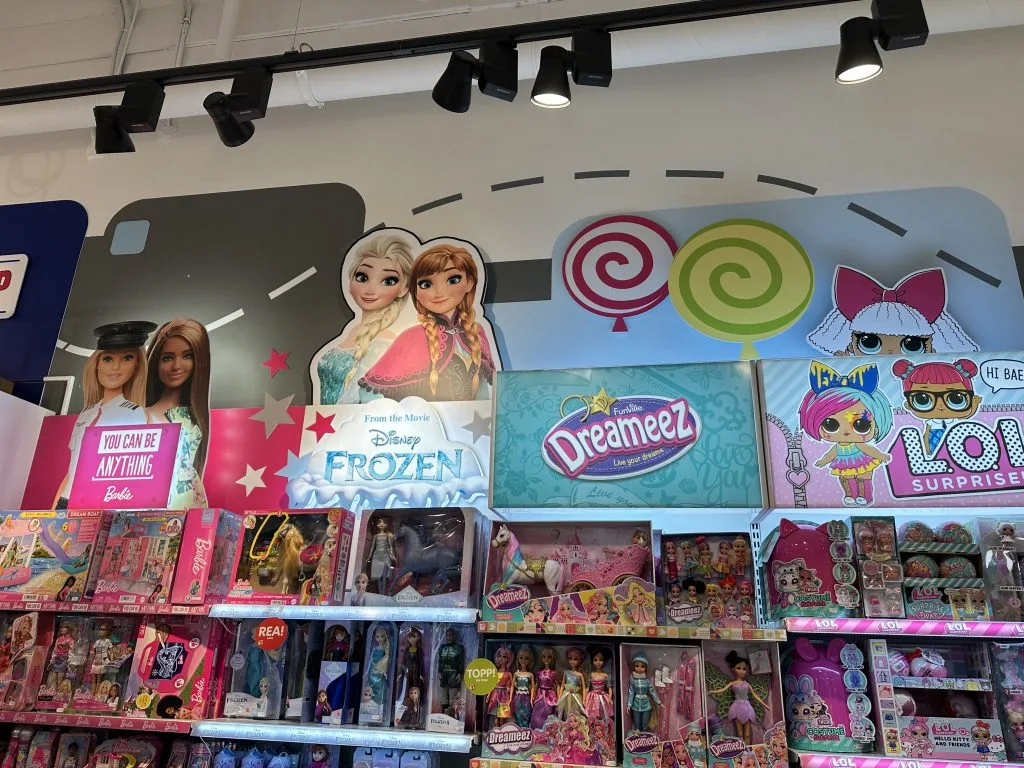Video Games Should Do Some Imperialism On Toys Already

Every time I’m in the mall, I wander into a toy shop hoping that video game imperialism will have finally conquered a domain that should be a layup. Yet, despite nearly 80% of U.S. kids playing games, and almost 50% on Roblox, games occupy 5-10% of the kids’ toy shelves.

It’s worse, too, as we look at the Roblox shelf, perhaps the weakest of any game IP, holding almost no original value (they’re trying to fix this with their first live ops event), and it’s instead filled with Stumble Guy toys on deep discount. Instead, games have become a vessel for other IPs, with nearly all of the IPs on the shelf having integrations back in the games, including a notable one between NERF and Stumble Guys. In the same way that Netflix rewrote the rules for Hollywood by aggregating demand and then using that to control the supply chain, games need to do the same when it comes to toys.

Angry Birds has been obliterated, Brawl Stars merchandise is nowhere to be seen, having been pulled off shelves, and Sonic has run away despite movie domination. Fortnite skews a bit older, and sometimes the odd toy or two will appear again, including Nerf crossovers. However, like Roblox, Fortnite’s IP is ethereal; in fact, it’s almost built that way. Minecraft is far more successful, and the movie reinforces that there are real IP elements. Despite this, any Lego shelf (and only the kids-targeted Lego sets) occupies nearly 4 times the shelf space. Sadly, we’re completely absent from the girl toy section. Many of the most severe criticisms of free-to-play are reinforced by examining these images. There’s simply no brand identity attached to mobile F2P games, and so it demands little memorabilia.

The exception is the Anime Heroes shelf – a new sight in the West and anecdotal evidence of anime’s growing popularity. The East has intertwined games and anime to such an extent that games have become anime, and anime has become games. It’s not just from a story perspective: the business models are far closer, too.
Gaming’s greatest strength is its ability to adapt and mold itself to any platform or IP, but we seem to have lost our ability to bend other media to us.